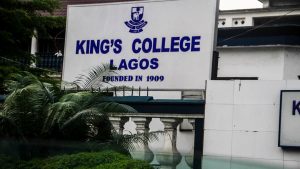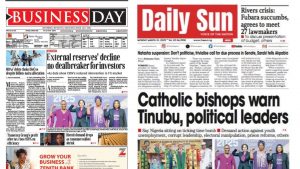Consultant at Mercy Corps Nigeria – 4 Openings

Mercy Corps is a leading global organization powered by the belief that a better world is possible. In disaster, in hardship, in more than 40 countries around the world, we partner to put bold solutions into action – helping people triumph over adversity and build stronger communities from within. Now, and for the future.
We are recruiting to fill the position below:
Job Title: Consultant
Locations: Gombe, Borno, Yobe and Adamawa
Employment Type: Contract
Background of the Project
- The Rural Resilience Activity, a $30 million five-year program, was launched and currently implemented by a consortium of three organizations, i.e. Mercy Corps (MC), Save the Children (SC) and International Fertilizer Development Center (IFDC).
- This USAID-Feed the Future-funded Activity aims to kick-start and accelerate resilient futures in Northeast Nigeria, directly benefiting 90,000 households in four states (Adamawa, Borno, Gombe and Yobe).
- The project is designed on the premise that by stimulating inclusive resilient market systems that take into account the challenges and constraints of the Northeast environment, this approach can systematically move individuals and households out of chronic vulnerability and transform the Northeast’s economy, setting it on a path for stability, resilience, prosperity and inclusion for self-reliance.
- The program’s overall goal is to effect long-term sustainable improvements to markets in Northeast Nigeria that will promote stability, improved nutritional status and sustainable progress out of poverty.
- A major outcome of the project is to Increase and strengthen capacities of formal and informal community organizations and networks to build social capital and support collective action.
- The project looks to support and revitalize business groups, community-based economic groups and youth groups, and work with them to enhance negotiation and conflict management skills. Increased and strengthened capacities of formal and informal community organizations and networks to build social capital and support collective action, support and revitalize business groups, community-based economic groups and youth groups, and work with them to enhance negotiation and conflict management skills.
- The project also focuses on building the capacity of organizations to engage with local government around communities of concerns and challenges, and support local government authorities and agencies to include the voice of local organizations, in particular around Natural Resource Management concerns and other sources of conflict.
Objectives
- The main objective of this activity is to come-up with a community natural resources management action plan, in order to mitigate the risk of natural and manmade disasters and build sustainable environmental conservation plans across communities.
The specific objectives include:
- Map and understand existing structures of Natural Resources and community mobilization and environmental conservation methods used in managing them.
- Based on evidence, create awareness on climate change risk to adapt, and build capacity of community groups and government partners to adopt the use of community driven approach in natural resources management.
- Promote water conservation technology in dry land and support reservation of natural resources within implementing location and increase awareness around land use practices.
Scope of Work
The assessment will focus on the following areas regarding the operational capacity of the community structure:
- Inclusive and comprehensive desk review of existing studies and literature that covered similar topics as this study to generate relevant secondary data for the assessment
- Mapping of community natural resource and NRM groups, relevant value chain clusters, women and youth groups and membership, agro-processors, relevant government MDAs (location specific) responding to natural disasters and natural resource management and defining their relationship to natural resource management.
- Assess the capacities of existing natural resource groups and networks to identify existing gaps and risks with a view to building capacities and offer all-round technical support
- Assess the environment and how it impacts on the community productivity and recommend ways to reduce risk of exposures.
- Describe the activities, programmes and services currently carried out by the identified natural resource groups and organizations, where, when and how they have been implementing their activities considering the natural resources within the community.
- Determine partnership/collaboration that the community has built and maintained in a sustainable and mutually beneficial manner and other partnership opportunities, which can be capitalized on in management or development of its natural resource.
- Identify the key knowledge and skills needed by the formal and informal community groups and networks to improve their capacity. The findings will guide the development of training guidelines/manuals and identify possible facilitators for capacity building training on natural resource management.
- Assess the training capacities of relevant ministries, departments and agencies (MDA), and identify gaps for improvement including training needs to equip MDA staff as “master trainers” for strengthening of community groups and networks.
- Determine the inclination and capacity of the target towards gender equality, through the lens of Women Economic Empowerment and social inclusion
- Design tools for monitoring participation of formal and informal community groups and networks in environmental resource management and development.
- Design advocacy approaches towards effective and efficient public-private partnership of natural resources management
Methodology and Approach
- The Consultant will be required to submit a technical proposal, including the proposed assessment methodology and tools that are designed in a way to ensure the assessment analysis and findings will capture all the requirements mentioned in the scope section.
The methodology should include the following:
- Define the assessment methodology and develop data collection tools. There will be a strong preference for group assessment and environmental impact assessment tools and dimensions developed by USAID.
- Review relevant materials held by RRA Consortium partners and those held externally
- Identify key respondents to be interviewed through focused group discussions and key informant interviews across project LGAs and communities of implementation with relevant actors and beneficiaries taking into consideration.
- Collect data on natural resource groups and networks through focused group discussions and key informant interviews taking into account their strengths, weaknesses, opportunities and threats
- Analyze data and information, and formulate recommended strategies and interventions required to bridge the defined gaps and needs in technical and operational capacity of the community natural resource groups and networks including value chain clusters, economic groups, women and youth groups.
- Assess capacity of MDAs to facilitate capacity building training, linkages and business relationships, and recommended appropriate approaches for bridging identified gaps.
- Presentation of preliminary findings and recommendations to get inputs for finalization of the report
- Explore the specific gender equality diversity and social inclusion dynamics of natural resource management in the target context and make recommendations for Women Economic Empowerment and Social Inclusion
- Submission and validation of final report and sharing of assessment findings with relevant stakeholders
Deliverables
Deliverables should include the following:
- Any suggested improvements to existing study scope, as outlined in this document.
- An inception report, including: planned timeline and work plan, literature review of all relevant secondary sources, detailed methodology / approach, planned stakeholders to be consulted and sampling framework, data collection and analysis tools, qualitative and quantitative protocols for data collection and analysis.
- Definition of framework to ensure we have a common understanding of key terms and sectors.
- Presentation of preliminary findings for consultation with RRA consortium partners.
- Map and assessment of existing formal and informal community natural resource groups and natural resource management networks including value chain clusters, CSOs, business groups, economic groups, women and youth groups and agro-processors.
- Presentation of SWOT analysis carried out for community groups and networks on community natural resource management.
- Details of capacity gaps in MDAs and analysis of capacity building approaches, including challenges and constraints faced by formal and informal community groups and networks, strategies for overcoming them and points of leverage.
- Description of activities, programmes and services provided by community groups and networks, including partnerships and collaborations.
- Draft report written in English for presentation/discussion with RRA Consortium Partners.
- One (1) electronic file of the clean (final) qualitative and quantitative data collected
- Final report that incorporates consortium partners’ feedback.
Qualification
Minimum Qualifications:
- At least a Master’s Degree, preferably in Agronomy, Agriculture, Natural Resource Management, Livelihoods or other relevant discipline or relevant experience
- Over 5 years’ research experience related to Environmental Impact Assessment (EIA), livelihoods and resilience in humanitarian and development context.
- Experience with socio-economic surveys.
- Experience in building capacities in NRM
- Good understanding of the context in North East Nigeria
- Ability to produce well written, analytical reports in English
- Strong quantitative and qualitative data analysis skills
Time Duration:
- The consultant shall work for a period of 15 Days within all the mentioned States; Mercy Corps will be responsible for Hotel Accommodation and Transportation of Consultant.
Payment Terms
- The facilitator will be paid a daily fee of NGN65,000 for the fifteen days Assignment.
- Other support cost such as hotel accommodation (to be arrange and paid for by Mercy Corps in line with Mercy Corps policy) and transportation reimbursement (per mileage) will be paid to the consultant where Mercy Corps does not provide logistics.
- All payment will be made upon successful completion of the fifteen days assignment and provision of final draft report from the exercise by the facilitator.
- The payment will be processed upon successful submission of reportby the consultant.
Application Closing Date
18th July, 2021
The post Consultant at Mercy Corps Nigeria – 4 Openings appeared first on Jobs in Nigeria – http://jobsinnigeria.careers.







